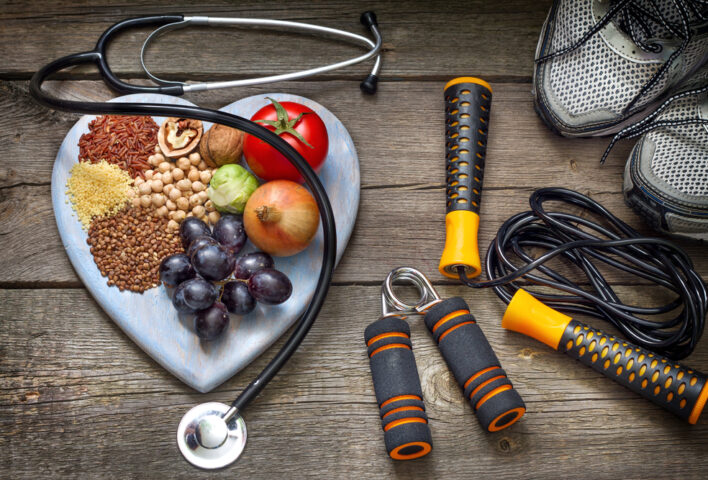Ask the Dietitian: Sports nutrition
Do we need to change what we eat when we are more active? Registered dietitian Rachael Hunter takes a closer look in her latest Ask the Dietitian column.

Most of us already know that being active is good for us. It can improve our sleep, our mood, boost our energy, strengthen bones and muscles and reduce the risk of diseases. But do we need to change what we eat when we are more active?
The government recommends 150 minutes of moderate or 75 minutes of vigorous intensity exercise a week, and with this level of exercise most of us will not need to make significant adjustments to how and what we eat. This article will look at a few areas in more detail.
Protein
A common myth is that by simply eating more protein we will get bigger muscles. Although we need protein to build and repair muscle, in reality most of us will meet and even exceed our protein requirement through having regular balanced meals. People who do a large amount of high intensity training will need slightly more protein, but even with this higher requirement this is still likely to be met through a balanced diet.
This means that most of us do not need protein milkshakes or powders. Our bodies can digest around 20g of protein at a time (this is the same as three eggs or a large tin of baked beans), and so if we have much more than this in one go our bodies will not get any additional benefit.
In the past it was thought that animal protein was better in terms of building muscle, but studies have found that plant-based protein can perform just as well. It is about ensuring that we have a variety of different plant-based proteins to help make sure we get the variety of amino acids that we need.
Carbohydrate
Our bodies love to use carbs as fuel, and this includes when we are being active. Our muscles have their own store of carbohydrate (called glycogen), but only in limited amounts. This quickly gets used up when we exercise, and so to help us restock it is important to have regular carbohydrate-containing meals throughout the day.
Hydration
If we are dehydrated, we will not be performing at the top of our game mentally or physically. It is good to keep drinking fluids before, during and after exercise. As a general rule if the exercise is less than one hour, good old tap water will do the job. If it is an intense activity lasting over an hour, it would be worth considering an isotonic drink. This will contain some added electrolytes to replace what is lost in sweat.
Timing
Most of us will be able to adapt our regular eating pattern to fit around the type of exercise that we want to do. Having a light meal or snack that includes carbohydrate 2-3 hours before exercise will help make sure we have energy available, and then having another meal in the 3-4 hours post-exercise with carbs and protein will help our body to recover. In the past, we thought there was a strict window when we needed to eat after exercise, but this is shifting and for most of us our next regular, balanced meal will give our bodies what we need.
